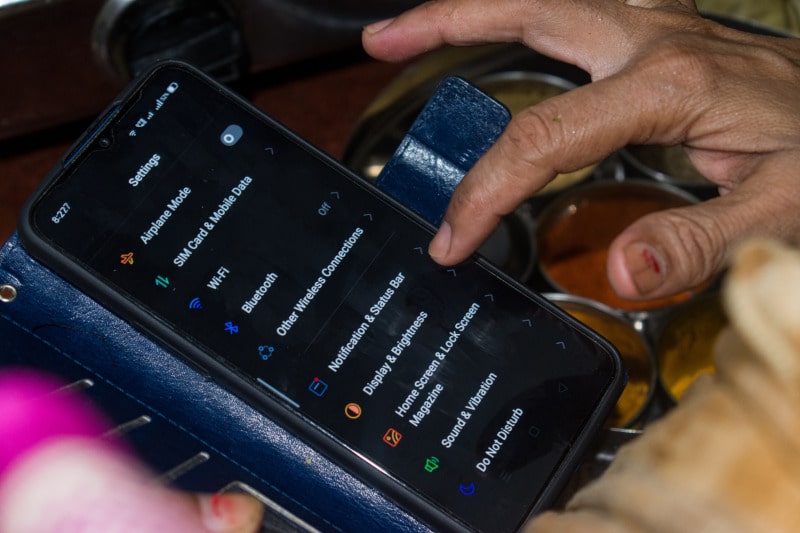As an expert in mobile marketing and app monetization, I’ve often been asked, “What are push notifications on Android, and how can they help generate income?”.
This article will answer the question “What are Push notifications on Android?”, explain their benefits, how they work and how they can be leveraged to boost your revenue.
Content
What Are Push Notifications on Android and How to Generate Income With Them?
To answer the question “what are push notifications on Android?,” it’s essential to grasp the basics first. Push notifications are messages sent from an app to a user’s device, designed to engage and re-engage users by delivering timely, relevant information.

Unlike emails or SMS, push notifications appear directly on the user’s home screen or lock screen, making them an incredibly effective communication tool.
The Benefits of Push Notifications
Push notifications on Android offer several advantages that make them a powerful tool for app developers and marketers:
Direct Engagement
Push notifications allow you to reach users directly on their devices, ensuring your message is seen promptly.
Increased User Retention
By sending relevant and timely notifications, you can keep users engaged with your app, reducing churn rates.
Higher Conversion Rates
Personalized mobile as well as web push notifications can lead to higher conversion rates as they target users with content strategies that interests them.
Cost-Effective
Compared to other forms of marketing, push notifications marketing campaigns are relatively inexpensive, offering a high return on investment.
For a detailed explanation on push notifications, visit this Push Notification Guide.
How Push Notifications Work on Android
When discussing the question “what are push notifications on Android?”, it’s important to understand the technical aspects as well. Push notifications rely on a combination of software components, including the app server, the notification service provider, and the Android device itself.
Sending Push Notifications
- App Server: This is where the notifications are generated. It could be your app’s backend or a third-party service.
- Notification Service Provider: For Android, this is typically Firebase Cloud Messaging (FCM), which acts as a bridge between the app server and the user’s device.
- Android Device: When the notification reaches the device, it’s displayed based on the device’s notification settings.

The entire process starts with your app server sending a message to FCM. FCM then handles the routing and delivery of the notification to the specified Android device on which you first have to turn on the feature for receiving push notifications.
Customizing Push Notifications
To fully give you an answer to the question “What are Push Notifications on Android?” and in order to maximize the effectiveness of push notifications, customization is key. You can personalize notifications based on user behavior, preferences, and demographics. This customization can include:
- Personalized Messages: Addressing users by their names or referencing their specific actions within the app.
- Rich Media: Including images, videos, or interactive elements to make notifications more engaging.
- Actionable Buttons: Adding buttons that allow users to take immediate action, such as replying to a message or making a purchase.
For a comprehensive advertising platform that can help streamline this process, check out AdsBravo.
Leveraging Push Notifications to Generate Income
Now that we’ve covered the question “what are push notifications on Android?” and how they work, let’s discuss how you can use them to generate income.
Drive In-App Purchases
One of the most effective ways of monetization of push notifications is by driving in-app purchases. By sending timely notifications about sales, special offers, or new product releases, you can encourage users to make purchases within your app. For instance, a notification about a limited-time discount on a popular item can create a sense of urgency, prompting users to buy.
Increase Ad Revenue
Push notifications can also help increase your ad revenue. By driving more traffic to your app through notifications, you can increase the number of ad impressions and clicks. This can be particularly effective if you’re using a robust advertising platform that optimizes ad placement and targeting.
Boost Affiliate Marketing
If your app includes affiliate links, push notifications can drive traffic to those links, boosting your affiliate marketing income. Notify users about new blog posts, product reviews, or special promotions that include your affiliate links. By doing so, you increase the chances of users clicking on those links and making purchases, earning you a commission.
Promote Subscriptions
For apps that offer subscription services, push notifications can remind users to renew their subscriptions or inform them about new subscription-based content. This helps maintain a steady revenue stream from existing subscribers while attracting new ones.

Retargeting and Re-Engagement
Push notifications are a powerful tool for retargeting and re-engaging users who may have stopped using your app. By sending personalized messages that address their specific needs or interests, you can bring inactive users back to your app, increasing the chances of monetizing their interactions.
For more insights into how advertisers and publishers can benefit from push notifications, visit Advertisers and Publishers.
Understanding the push technology on Android and leveraging them effectively can significantly boost your app’s income. By creating engaging, personalized notifications and strategically driving user actions, you can increase in-app purchases, ad revenue maximization, affiliate marketing income, and subscription rates. Implement these strategies, and watch your app’s earnings grow.
For further details and tools to enhance your push notification strategy, consider exploring platforms like AdsBravo.


